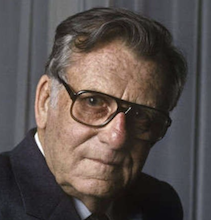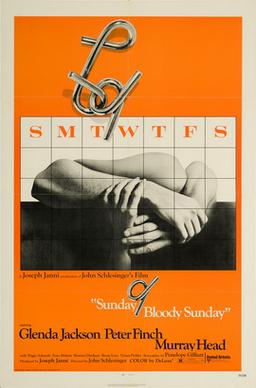
Moby-Dick; or, The Whale is an 1851 epic novel by American writer Herman Melville. The book is centered on the sailor Ishmael's narrative of the maniacal quest of Ahab, captain of the whaling ship Pequod, for vengeance against Moby Dick, the giant white sperm whale that bit off his leg on the ship's previous voyage. A contribution to the literature of the American Renaissance, Moby-Dick was published to mixed reviews, was a commercial failure, and was out of print at the time of the author's death in 1891. Its reputation as a Great American Novel was established only in the 20th century, after the 1919 centennial of its author's birth. William Faulkner said he wished he had written the book himself, and D. H. Lawrence called it "one of the strangest and most wonderful books in the world" and "the greatest book of the sea ever written". Its opening sentence, "Call me Ishmael", is among world literature's most famous.

Peter Philip Carey AO is an Australian novelist.

Percy is a 1971 British comedy film directed by Ralph Thomas starring Hywel Bennett, Denholm Elliott, Elke Sommer and Britt Ekland.

Maurice Ernest Gibb was a British musician and songwriter. He achieved worldwide fame as a member of the pop group Bee Gees. Although his elder brother Barry Gibb and twin brother Robin Gibb were the group's main lead singers, most of their albums included at least one or two songs featuring Maurice's lead vocals, including "Lay It on Me", "Country Woman" and "On Time". The Bee Gees are one of the most successful pop-rock groups of all time.

Frederick George Peter Ingle Finch was an English-Australian actor of theatre, film and radio.

Morris Langlo West was an Australian novelist and playwright, best known for his novels The Devil's Advocate (1959), The Shoes of the Fisherman (1963) and The Clowns of God (1981). His books were published in 27 languages and sold more than 60 million copies worldwide. Each new book he wrote after he became an established writer sold more than one million copies.

Giles Goat-Boy (1966) is the fourth novel by American writer John Barth. It is a metafictional comic novel in which the universe is portrayed as a university campus in an elaborate allegory of both the hero's journey and the Cold War. Its title character is a human boy raised as a goat, who comes to believe he is the Grand Tutor, the predicted Messiah. The book was a surprise bestseller for the previously obscure Barth, and in the 1960s had a cult status. It marks Barth's leap into American postmodern fabulism.
The Miles Franklin Literary Award is an annual literary prize awarded to "a novel which is of the highest literary merit and presents Australian life in any of its phases". The award was set up according to the will of Miles Franklin (1879–1954), who is best known for writing the Australian classic My Brilliant Career (1901). She bequeathed her estate to fund this award. As of 2016, the award is valued at A$60,000.
Barry Moser is an American visual artist and educator, known as a printmaker specializing in wood engravings, and an illustrator of numerous works of literature. He is also the owner and operator of the Pennyroyal Press, an engraving and small book publisher founded in 1970.

New Holland is a historical European name for mainland Australia, first encountered by Europeans in 1606, by Dutch navigator Willem Janszoon aboard Duyfken. The name was first applied to Australia in 1644 by the Dutch seafarer Abel Tasman, and for a time came to be applied in most European maps to the vaunted "Southern land" or Terra Australis even after its coastline was finally explored.
The following lists events that happened during 1970 in Australia.

Sunday Bloody Sunday is a 1971 British drama film directed by John Schlesinger, written by Penelope Gilliatt, and starring Glenda Jackson, Peter Finch, Murray Head and Peggy Ashcroft. It tells the story of a free-spirited young bisexual artist and his simultaneous relationships with a divorced recruitment consultant (Jackson) and a gay Jewish doctor (Finch).
Venetta Lee Fields is an American-born Australian singer and musical theater actress, and vocal coach.
Dallas George "Dal" Stivens was an Australian writer who produced six novels and eight collections of short stories between 1936, when The Tramp and Other Stories was published, and 1976, when his last collection The Unicorn and Other Tales was released.
Chain are an Australian blues band formed as The Chain in late 1968 with a line-up including guitarist and vocalist Phil Manning and lead vocalist Wendy Saddington. Saddington left in May 1969 and in September 1970 Matt Taylor joined on lead vocals and harmonica. During the 1990s they were referred to as Matt Taylor's Chain. Their single, "Black and Blue", is their only top twenty hit. It was written and recorded by the line-up of Manning, Taylor, Barry Harvey on drums and Barry Sullivan on bass guitar. The related album, Toward the Blues, followed in September and peaked in the top ten. Manfred Mann's Earth Band covered "Black and Blue" on their 1973 album Messin'.
The Clean Machine is a 1988 Australian tele movie about police corruption starring Steve Bisley. It was one of four telemovies made by Kennedy Miller around this time, the others being The Riddle of the Stinson, The Damien Parer Story and The Year My Voice Broke.
This article presents a list of the historical events and publications of Australian literature during 1939.

Archimedes and the Seagle (1984) is a novel by Australian writer David Ireland. It won the ALS Gold Medal in 1985.
This article presents a list of the historical events and publications of Australian literature during 1957.
This article presents a list of the historical events and publications of Australian literature during 1970.










